Darja Filipova didn’t grow up thinking she’d be a coffee professional. She just followed her interest, first at home in a cosy but windy town called Liepāja. Then into cafés, kitchens, festivals, and finally to Rocket Bean in Riga, where she now leads as Head Barista in one of their locations.
Darja blends technical skill with a deep love for hospitality, always looking to learn more and to share what she discovers. She’s not chasing trends but focuses on building better coffee experiences, one thoughtful cup at a time.
We have asked Darja about her journey of becoming a competent competition barista, how she keeps her curiosity sharp, and what she’s brewing up next!
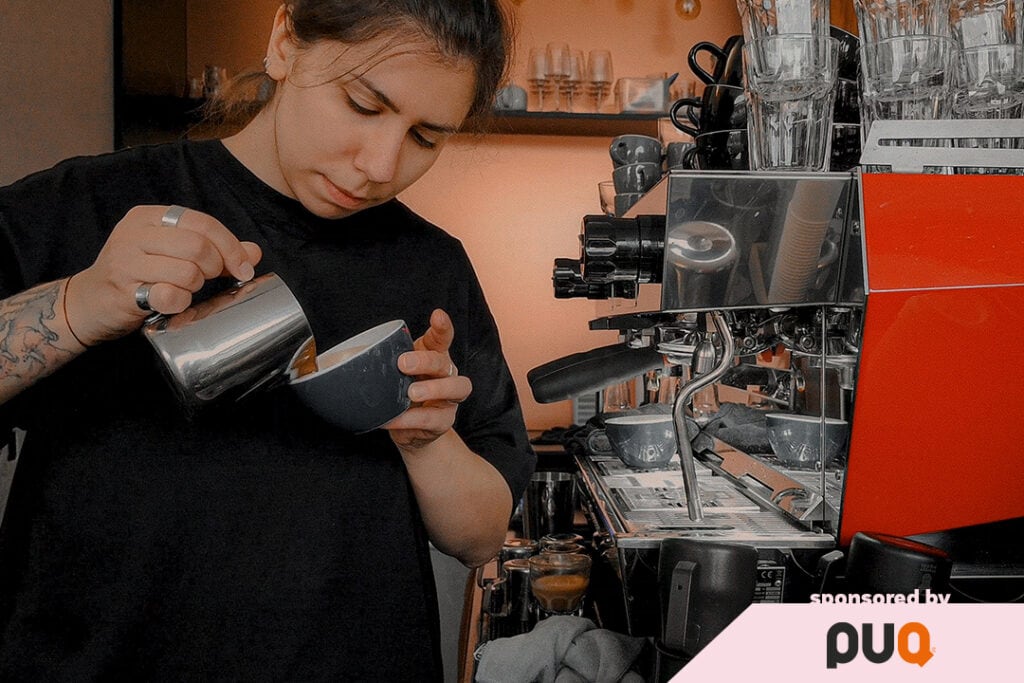
Darja, what is your first memory with coffee?
My first memory of coffee is its smell! I’m very sensitive to aromas, and there was always a strong coffee scent at home because my parents drank it regularly. That aroma became an instant love, even before I ever tasted it. My first sip was from my mom’s cup: pitch-black, bitter, and intense, but so fragrant! I remember thinking I’d never drink coffee myself, and now here I am, sometimes making it just as strong.
What inspired you to pursue a career in the coffee industry, and how did you get started? What did you do before coffee?
As a teenager, I listened to a band whose drummer often shared on social media about drinking different espressos. It made me wonder—what could be so special about such a small, bitter drink? That curiosity drew me into the world of coffee, though at the time, I was mostly exploring the commercial side.
I even wrote a school paper on coffee and brought in samples in little zip-lock bags to demonstrate grind size and roast differences. Had no idea what I was doing back then, but I knew I was fascinated. I wanted to be like the baristas I saw, knowledgeable and confident. But I never felt skilled enough.
I started as a dishwasher in a café that served Julius Meinl coffee. It was a simple setup, just one espresso machine, two grinders (“regular” and “strong”), and portafilters for single and double shots. All the coffee tasted bitter to me, and the only thing I could drink was a cappuccino with syrup and a single shot.
Eventually, I was offered a job in the pastry kitchen, working with laminated dough, since I had some baking experience. I shifted away from coffee, but I never stopped loving it. I began travelling to coffee festivals, and the London Coffee Festival was the turning point; it introduced me to the world of specialty coffee. It felt like another universe: Coffee Masters, all the gear, the people, the roasters… It was magical and a bit intimidating.
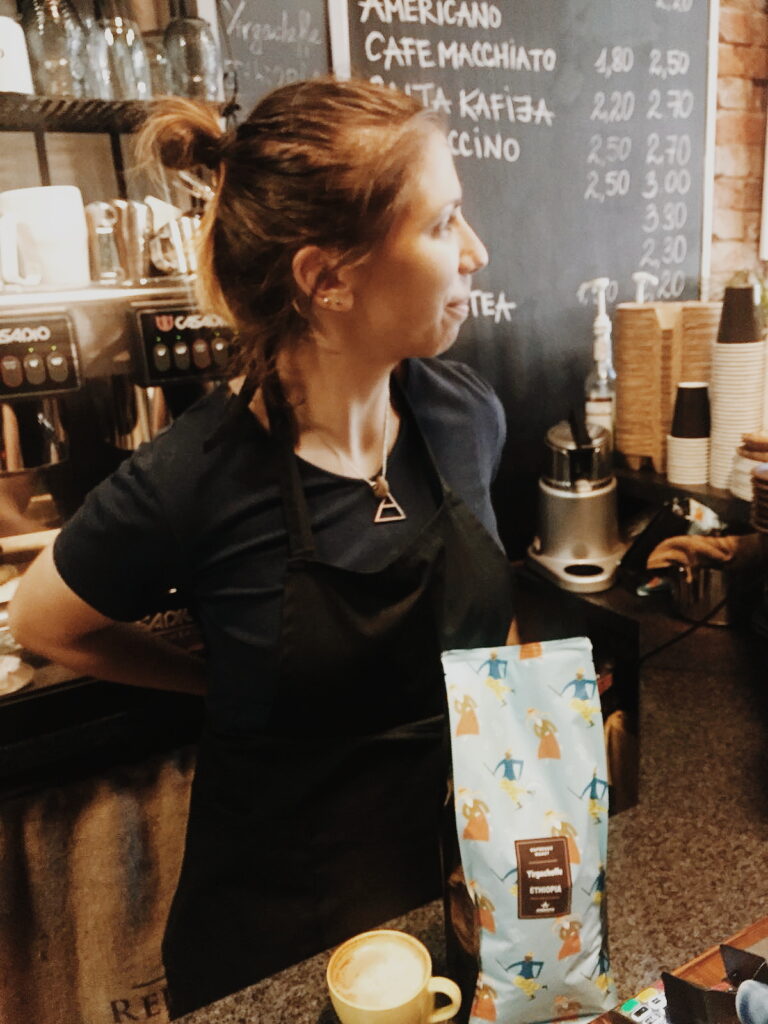
Back in my hometown, specialty coffee was rare. But when a small coffee shop opened serving it, I brought coffee there and we’d experiment with brewing. The owners are incredibly generous with their knowledge. I’d bake croissants at 4 a.m., then go spend time there, soaking up everything I could. Even just being in that space made me feel part of the community.
Eventually, I moved to Riga, continued working with laminated dough, then as a florist, but coffee kept calling me back. In 2024, after winning a local competition, I returned to coffee full-time.
Tell us a bit about your current work. What is your role there?
I currently work at Rocket Bean—a local specialty roastery with 5 coffee shops in town. I’ve been a guest of theirs for eight years, travelling from Liepaja to Riga just for a cup of their coffee. I’ve always loved what they do, so I was thrilled to see an open position.
I’m now the head barista at one of their locations. I help train new staff and develop educational programs with our manager to improve barista skills. I also create espresso and filter recipes, and of course, work behind the bar. Part of my role is maintaining quality and making sure everything runs smoothly, whether it’s during a rush or a quiet morning. It’s not always easy, but seeing the results is incredibly rewarding.
What kind of experience do you want people to have when they try your coffee?
Ideally, I’d love to give personal attention to everyone I serve – to ask if they enjoyed the coffee, to recommend something new, maybe even create a custom drink based on their preferences. Another recipe, another origin – then we’d talk about it. Those conversations are so valuable, especially if it’s someone’s first specialty coffee experience.
When I worked at a small café with a slow pace, some guests would stay for an hour or two just to talk about their cup. We’d brainstorm ideas for their next visit. That’s what I aim for: to share a love for specialty coffee with everyone who walks in. For many people, coffee is more than a drink – it’s a ritual. I want every cup I make to take someone on a journey and leave them wanting more.
What is your favourite coffee moment of the day, and why?
I have two! I love drinking coffee at any time of day.
In the morning, I prefer something with a bold profile – experimental or fermented processes. I recently tried a coconut-infused coffee that tasted like strawberry coconut cookies. In the evening, I lean towards something lighter and more classic, usually a washed coffee.
At home, I like to brew Chemex and sit with a book. But my favourite is making coffee outdoors, early in the morning, by a river, after a long kayak trip, with the sun warming your face and nothing but silence around. That’s when coffee tastes the best.
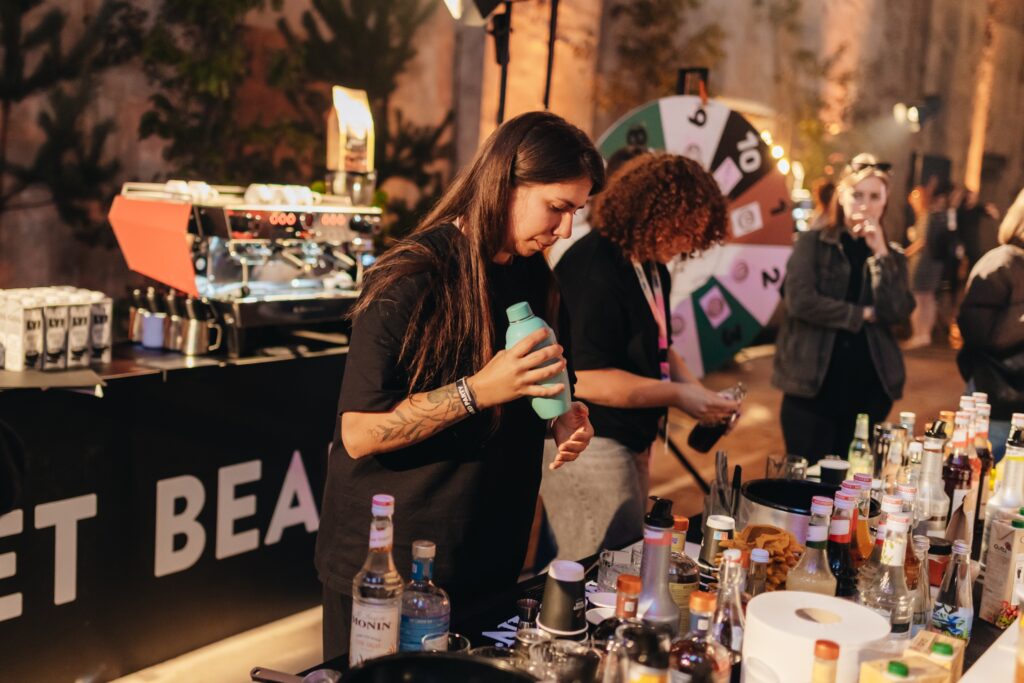
How do you stay motivated and inspired to keep improving your coffee-making skills?
Curiosity is my biggest motivator. I’m fascinated by the entire process, from brewing to farming. My dream is to document a trip to coffee farms on film, to see where it all begins, to understand and taste coffee at the source. That connection between people and nature is powerful.
The more I learn, the more I realise how much there still is to discover, and that keeps me going.
What are some common misconceptions about our industry that you’ve encountered, and how do you address them?
The biggest misconception I encountered was about what it means to be a barista. When I worked in a commercial café, we had no espresso recipes. Black coffee was watery and astringent; milk drinks (aside from lattes) were bitter. I thought that was normal, our managers and senior baristas did too. We deep-cleaned the machine only once a week.
Then I volunteered at the London Coffee Festival, and everything changed. It completely shifted my view of coffee as a product and as an experience. Now I build recipes to highlight the best qualities of a coffee, and I work on milk texture to enhance the cup, not mask it.
If there were one piece of knowledge about coffee you’d like everyone to know, what would that be?
Understanding processing and roasting methods makes choosing coffee so much easier. Each process has its own flavour profile, regardless of the tasting notes. Before I knew this, I often expected one thing and got something completely different, just because the processing was different. Knowing what to expect makes coffee more enjoyable and less confusing.
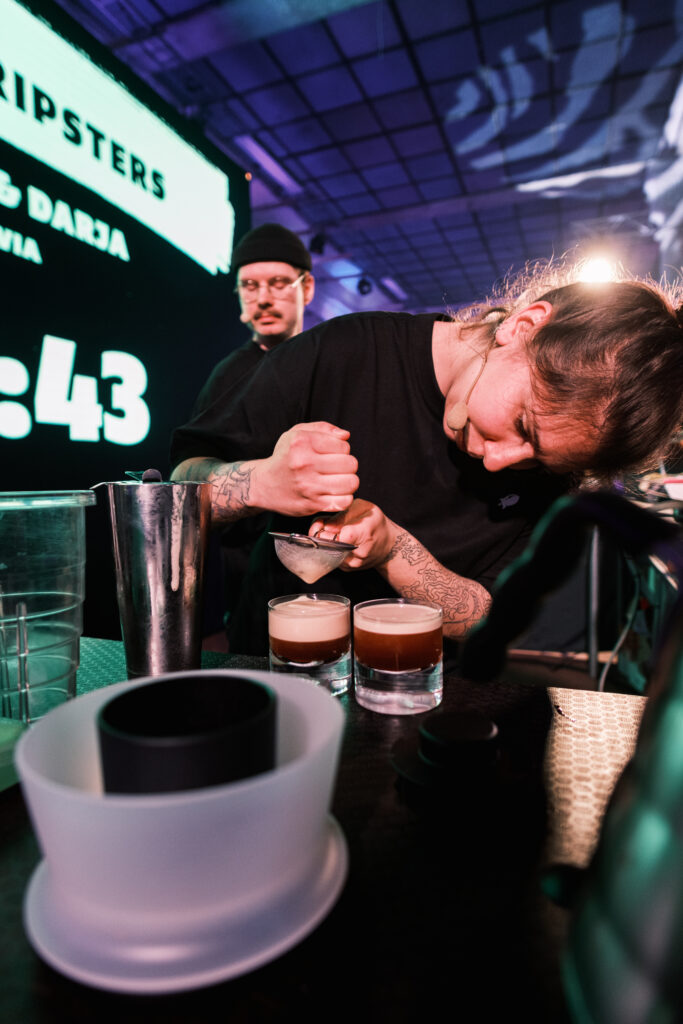
How did it feel to take part in The Barista League?
The Barista League had been a dream of mine for years. Back in 2019, baristas from Riga went and came back with incredible stories about roasting their own coffee and creating drinks for the first time. It sounded amazing.
At that time, I was working as a baker and didn’t feel ready. But this year, I was lucky to have a great teammate, and we decided to go for it, and we got in!
It was my first big competition. Of course, there was stress, but the excitement outweighed everything. It was an unforgettable experience, and I’m proud of how far we went. The community was so open and passionate—everyone shared and supported one another. I’d definitely compete again. There’s always room to grow!
Are you planning to take part in some other coffee competitions in the future?
Absolutely. I’d love to try different formats, Coffee In Good Spirits and the aroma tasting competitions are especially interesting to me.
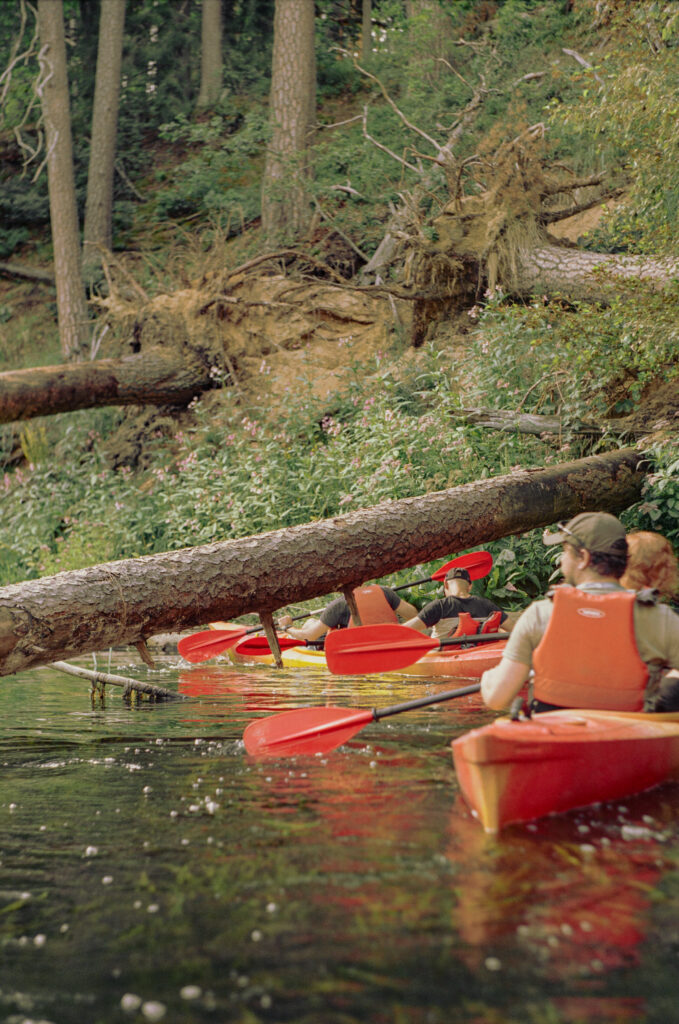
What are your passions and hobbies apart from coffee?
I love organising kayak trips for friends all around Latvia, where I photograph everything on film and cook meals over an open fire. We bring hammocks and tents and enjoy nature together.
In my free time, I take care of plants. If I didn’t work in coffee, I’d probably spend all my time in the garden. I also love baking focaccia and banana bread.
What coffee challenges are you looking forward to? Any new projects or collaborations?
In the future, I’d love to release my own drip coffee line with both classic and vibrant profiles. I spend a lot of time outdoors and want to simplify coffee brewing – no extra gear, just good coffee anywhere. I find good drip bags hard to source locally, so I’d love to make some for myself and friends.
Another goal is to earn a Q-grader license. I love studying coffee beans, but I still have a lot to learn. Right now, I’m focusing on developing my palate and learning to describe flavour in more detail.

Quick Fire Questions for Darja Filipova:
Filter coffee or espresso-based?
Filter coffee.
Milk coffee or black coffee?
Mostly black, but there is also extra love for fruity cortado.
The most underrated coffee drink?
Batch Brew, give him a chance!
The most underrated coffee brewer?
Coffee Syphon.
What brewing method do you use at home?
Chemex, sometimes Origami.
Favourite barista tool?
A good grinder.
The number one place in Europe that every coffee geek should visit?
Mazelab in Prague.
Favourite city outside your own for a coffee tour and why?
London! That’s my no. 1 city to go for a good coffee trip. So many good coffee shops in one city, the vibe, quality, just need to know where to go!

